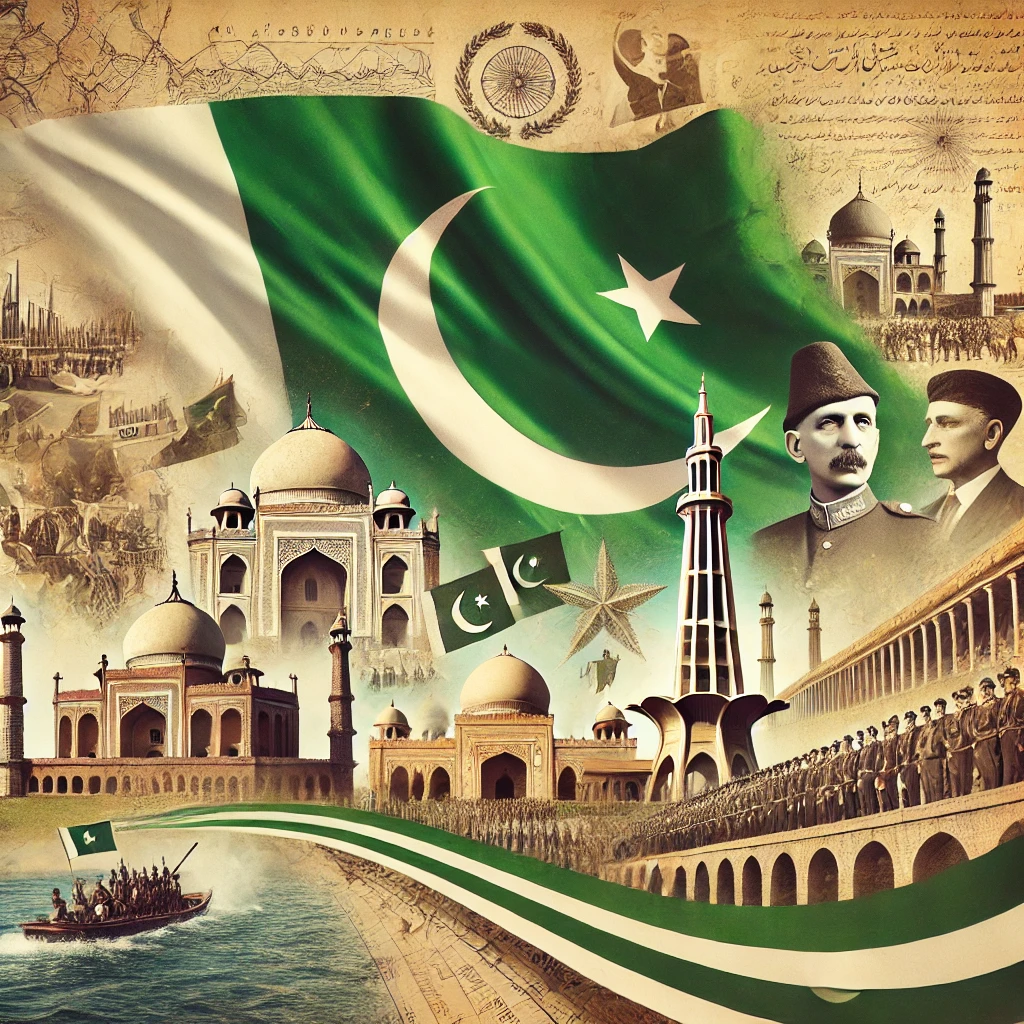Muhammad Ali Jinnah, often referred to as the "Quaid-e-Azam" (Great Leader), is one of the most influential figures in the history of South Asia. He played a pivotal role in the creation of Pakistan, a nation that emerged from the tumultuous period of British colonial rule in India. Jinnah's vision, leadership, and determination were instrumental in shaping the destiny of millions of Muslims in the Indian subcontinent. Early Life and Education Muhammad Ali Jinnah was born on December 25, 1876, in Karachi, which was then part of British India. He came from a well-to-do Gujarati merchant family and was the eldest of seven siblings. Jinnah's early education was at the Sindh Madrasatul Islam and later at the Christian Missionary Society High School in Karachi. His father, Jinnahbhai Poonja, wanted him to join the family business, but Jinnah had other aspirations.

At the age of 16, Jinnah traveled to London to study law at Lincoln's Inn. His decision to join Lincoln's Inn was influenced by his admiration for the Prophet Muhammad, whose name was inscribed among the greatest lawgivers at the Inn. Jinnah completed his law degree in 1896 and returned to India as a barrister. His time in England exposed him to the ideas of liberalism, democracy, and the rule of law, which would later shape his political philosophy. Early Political Career Jinnah's entry into politics began with his association with the Indian National Congress (INC) in 1906. He was initially a strong advocate of Hindu-Muslim unity and worked closely with prominent Congress leaders like Gopal Krishna Gokhale and Bal Gangadhar Tilak. Jinnah was also a staunch supporter of constitutional methods and believed in achieving political reforms through dialogue and negotiation. In 1913, Jinnah joined the All India Muslim League (AIML), which was formed to represent the interests of Muslims in India. He became a key figure in the League and was instrumental in bridging the gap between the Congress and the Muslim League. Jinnah's efforts led to the Lucknow Pact of 1916, an agreement between the Congress and the Muslim League, which sought to ensure greater representation for Muslims in legislative councils. The Shift in Jinnah's Ideology The post-World War I period saw a significant shift in Indian politics. The growing influence of Mahatma Gandhi and his methods of non-violent civil disobedience marked a departure from Jinnah's more moderate and constitutional approach. Jinnah increasingly found himself at odds with Gandhi's mass movements, which he believed were divisive and could potentially harm Hindu-Muslim relations. The failure of the Congress to adequately address Muslim concerns during the 1920s and 1930s led Jinnah to reconsider his earlier commitment to Hindu-Muslim unity. He gradually came to believe that Muslims in India needed their own political identity and a separate nation where they could freely practice their religion and culture. The Demand for Pakistan By the late 1930s, Jinnah had become the undisputed leader of the Muslim League. Under his leadership, the League adopted the Lahore Resolution in 1940, which called for the creation of "independent states" for Muslims in the north-western and eastern zones of India. This demand for a separate Muslim homeland became known as the "Two-Nation Theory," which argued that Muslims and Hindus were distinct nations with different religious, cultural, and social values. Jinnah's demand for Pakistan was met with resistance from the Congress, but his unwavering resolve and strategic political maneuvering eventually led to the British government conceding to the idea of partition. The Indian Independence Act of 1947, passed by the British Parliament, led to the creation of two independent dominions: India and Pakistan. Legacy and Death Muhammad Ali Jinnah became the first Governor-General of Pakistan, a role in which he sought to lay the foundation for a modern, democratic, and secular state. Despite his efforts, the early years of Pakistan were marred by communal violence, political instability, and the challenges of nation-building. Jinnah's health had been deteriorating for several years, and he passed away on September 11, 1948, just over a year after the creation of Pakistan. His death was a significant loss for the young nation, which had relied heavily on his leadership and vision. Conclusion Muhammad Ali Jinnah's legacy as the founder of Pakistan is deeply embedded in the history of South Asia. His vision of a separate homeland for Muslims continues to shape the identity of Pakistan to this day. While his political journey was marked by challenges and controversies, Jinnah remains a symbol of determination, leadership, and the pursuit of a vision against all odds. His life and contributions continue to be studied and debated by historians, scholars, and politicians across the world.
